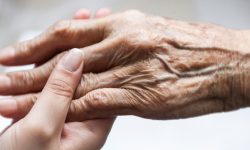Every couple of months for the last couple of years, a group of mostly elderly Unitarians gather around the board room table in the Moncure Conway room at the Unitarian Fellowship building in Fredericksburg and talk about how they’re going to end it all.

Not how they are going to take their own lives, but how they want their final days/weeks/months/years to go.
Principal organizer of this group is Gloria Lloyd, age 80, who worked for years as a grief counselor for Mary Washington Healthcare Hospice before retirement.
I wrote about her in December 2018, noting she says she wants “my death to be thoughtful, intentional and ethical.”
Incidentally, she has appointed herself as my big sister here in The Colonies. She thinks I need a stand in for my real big sister in London. Someone who “is not bossy but knows what’s best.”
I jest of course. Although she’s always recruiting me (and everyone else) in projects, she does it with such good grace . . . . . .
The Issue
Gloria’s husband Bob, age 86 has been having some medical problems. He, like Gloria and the rest of the group, is very much a believer in not getting caught up in the “ODTAA syndrome” that best-selling author and surgeon Atul Gawande talks about in his book Being Mortal: Illness, Medicine, and What Matters in the End.
This stands for “one damn thing after another” - referring to how so many people get in to futile, expensive, often punishing attempts at cure, rather than palliative care at the end of life.
Bob and Gloria want “to let nature take its course.”
Bob’s medical problems include “spells” of being very fatigued and “out of it” following what appeared to be a small stroke. A growth in his forearm, that appears to be a recurrence of a squamous cell carcinoma that is pressing on a nerve and causing pain.
Bob has been a regular tennis player, playing 5 days a week until recently. But now because of his problems, and an arthritic knee, has had to resort to a walker.
Both Gloria and Bob are very conflicted about what degree of treatment is right. He has got caught up in having various tests – MRI’s, a biopsy, visiting different doctors and surgeons. He still may need to go to a neurologist or perhaps a cardiologist about his “spells.” An oncologist about his arm. A rheumatologist about his knee – all of whom will surely want more tests.
“This is not what we wanted” notes Gloria.
No Easy Answer
There are a growing number of people who realize doctors get a little carried away, because they hate to do “nothing” when they have more tools in their toolbox – though good end of life care is not doing “nothing” of course. It is focused on maximizing comfort and function rather than length of life.
But Bob’s situation makes the point that you can have your plans drawn up, your “do not resuscitate or hospitalize” order, your living will and all those preparations but where do you draw the line?
He is likely to die of something else before the squamous cell cancer gets him, and the surgery was a big deal. Should he have just taken pain medicines? And what about his “spells” – should he do a lot of tests to try and diagnose those?
Bob and Gloria are in that difficult “no-man’s-land” of trying to decide. For all their resolve there are still anguished decisions to make. And though I have been trying to provide council, I don’t have a good answer.
I would like to acknowledge Bob and Gloria’s generosity in being willing to share their personal story.



